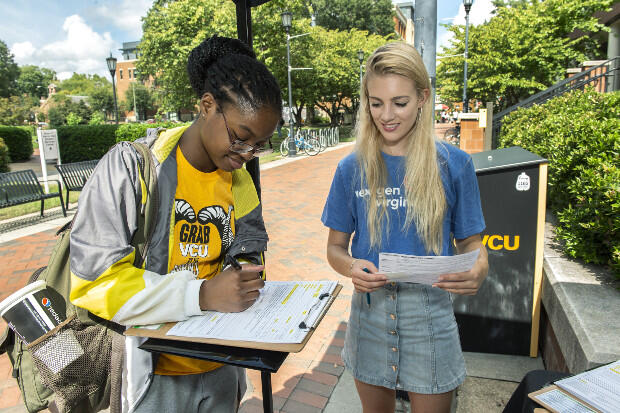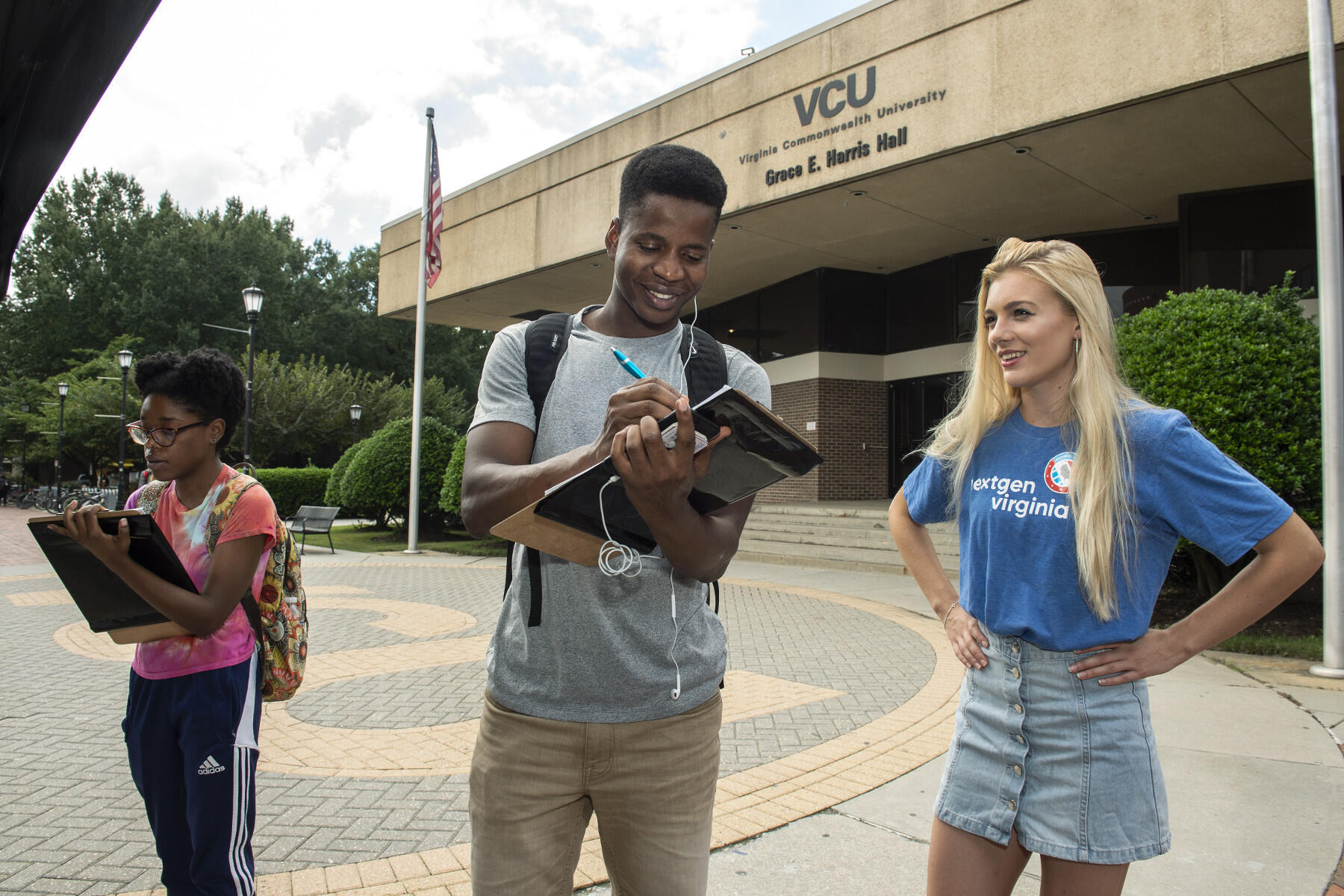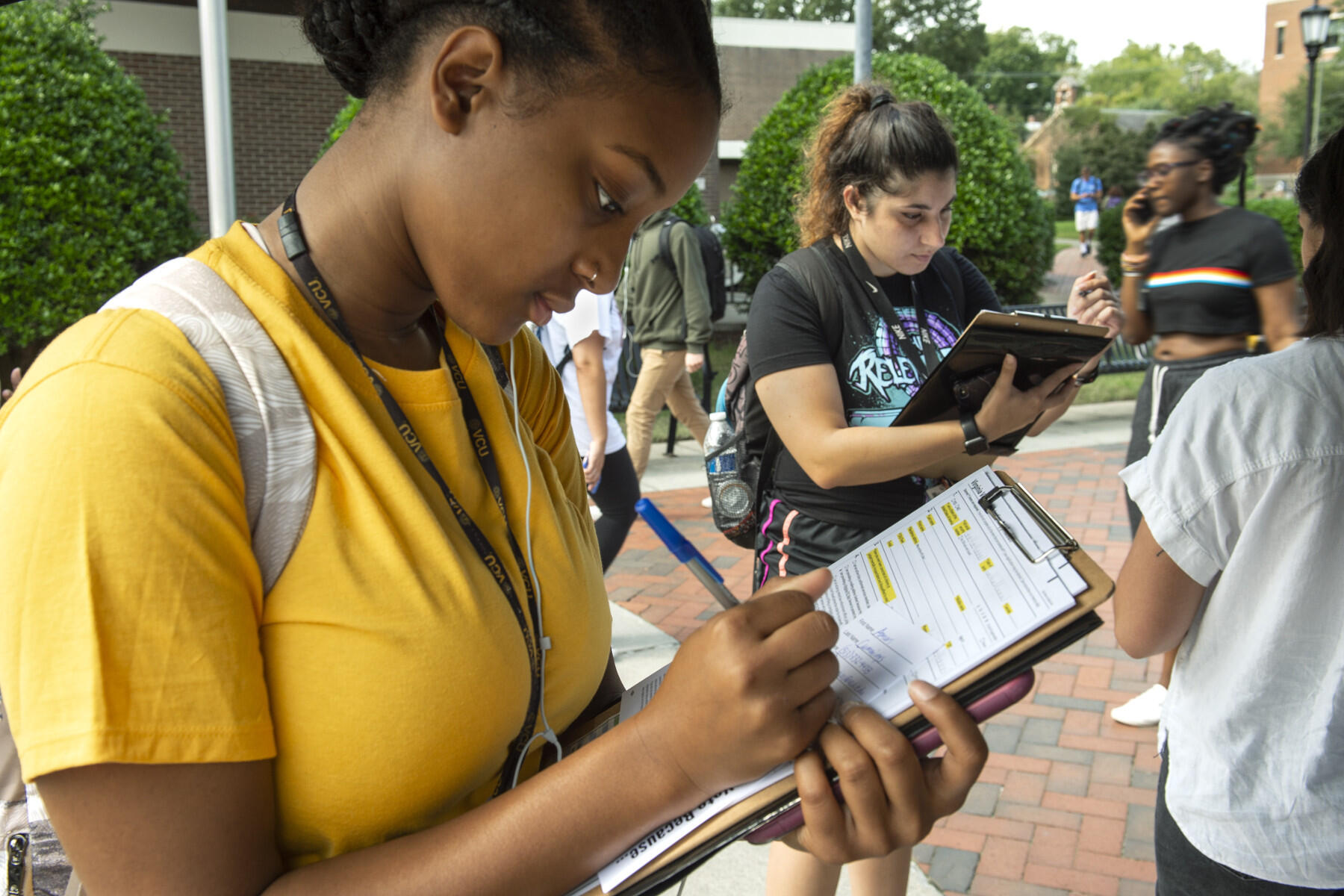
Oct. 11, 2018
Ahead of Election Day, VCU is recognized as a top college for student voters
Share this story
With Election Day fast approaching, Virginia Commonwealth University students are registering to vote in droves, helping Richmond community members get registered, and making plans to get to the polls on Nov. 6.
“Students want their voices to be heard,” said Anthony Jones, a senior in the VCU Honors College who has helped lead voter outreach programming on campus and in the community. “A lot of them feel like they want a way to bring about change, and have found a powerful outlet in exercising their right to vote.”
VCU is a leading institution in student voter registration and engagement, and was listed among “America’s Best Colleges for Student Voting” in the most recent issue of Washington Monthly.
|
The deadline to register to vote is Monday, Oct. 15. To register, find your polling place or to see what’s on the ballot and more, visit vote.elections.virginia.gov/VoterInformation. |
In 2016, 61.5 percent of VCU students voted, outpacing the national voting rate among all higher education institutions of 50.4 percent, according to data compiled by the National Study of Learning, Voting, and Engagement, an initiative of the Institute for Democracy and Higher Education at Tufts University.
Leading the effort to register, educate and mobilize VCU student voters is a coalition — VCU Votes — that includes students and faculty in the Honors College; VCU ASPiRE, a living-learning program that promotes community engagement; the VCU Division of Community Engagement; VCU faculty members in the Richard T. Robertson School of Media and Culture and the Department of Political Science in the College of Humanities and Sciences; the Division of Student Affairs and others.
“Since President Rao first came to VCU, he’s spoken about: what is the hallmark of a VCU education? It’s an engaged, real-world experience. That happens within the classroom, but also outside the classroom. It’s what you do on campus, as well as in the off-campus community,” said Lynn Pelco, Ph.D., associate vice provost for community engagement. “And voting is a large part of that.”
Pelco added that VCU Votes’ activities are aligned with regional and urban transformation goals in the university’s next strategic plan, Quest 2025: Together We Transform.
“We’ve taken an institutional view that going to VCU is not just going to class and passing your classes,” she said. “A VCU education has academics, connecting with your community, having an international perspective and being career ready. And getting registered to vote and being an engaged citizen is part of that whole picture.”
Erin Burke Brown, Ph.D., director of ASPiRE, said she encourages her students to vote in every election, not just in presidential election years. She also emphasizes the value of the right to vote.

“I searched through my grandfather’s things when he passed in 2013, and I found a receipt from him paying the poll tax,” she said. “I show that to my students. This was not that long ago. The students that we [teach], whether you’re a woman or you’re black or what have you, you wouldn’t have had this right. It hits students that this is not ancient history when many of us would not have been able to exercise their right to vote.”
The Honors College has received grants from the Andrew Goodman Foundation and the Campus Vote Project to increase voter engagement at VCU and in the Richmond community.
Jones, who is majoring in sociology, Spanish and international social justice in the College of Humanities and Sciences, is one of two campus ambassadors for the Andrew Goodman Foundation in the Honors College. Jones visits classes and organizes events to register and educate students about voting.
At a single event on National Voter Registration Day in September, Jones said, 174 VCU students registered to vote and 250 signed cards pledging to vote on Nov. 6.
Jacqueline Smith-Mason, Ph.D., senior associate dean and director of academic and faculty affairs for the Honors College, said that with the voter registration deadline on Monday, efforts are shifting toward educating student voters.
Last year, Richmond opened a new voting precinct on campus in the University Student Commons. Smith-Mason said helping students confirm their polling place’s location is a key goal.
“The new polling place does not serve all residence halls on campus. So if I'm a student going to vote, I can't make the assumption that [I vote] there,” she said. “Over the next couple weeks, we'll focus on helping students identify where their polling place is, helping them know who is on the ballot, and then getting them out to vote.”

VCU has also been designated recently as a “Voter Friendly Campus” by the Campus Vote Project, which recognizes schools that develop plans to coordinate administrators, faculty and student organizations in civic and electoral engagement.
National research shows that midterm election turnout is historically low on college campuses, Smith-Mason said. The team is working to reverse that trend at VCU.
“A goal for us is that students need to understand that midterm elections and local politics are just as important as a presidential election, and in some cases even more so,” she said. “Because it hits you right where you live.”
Subscribe to VCU News
Subscribe to VCU News at newsletter.vcu.edu and receive a selection of stories, videos, photos, news clips and event listings in your inbox.









